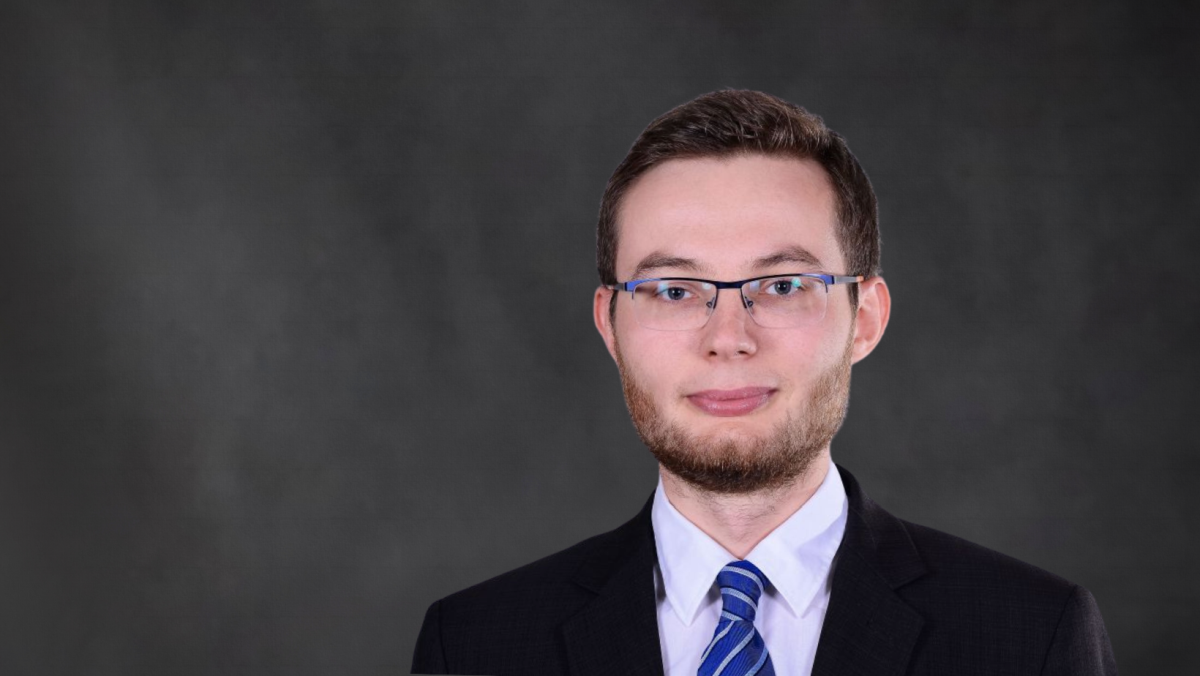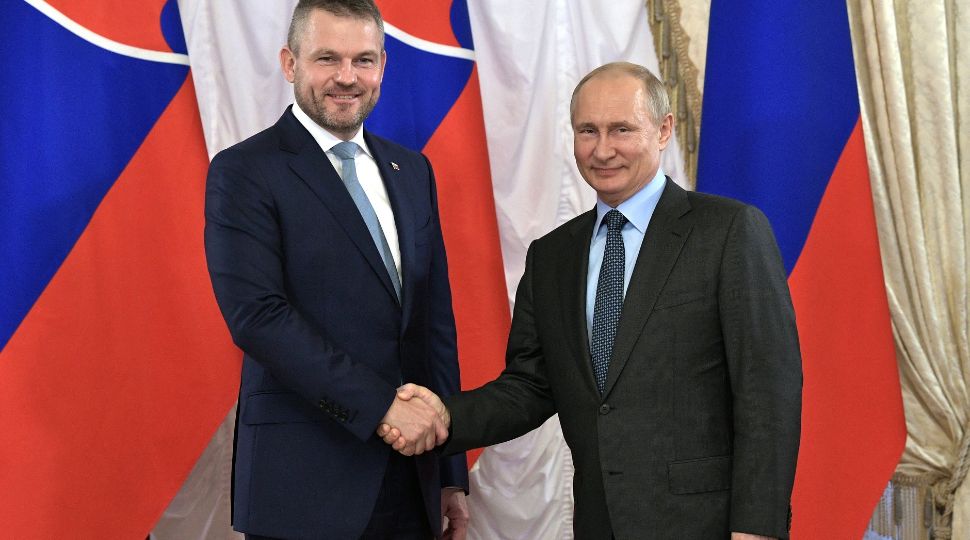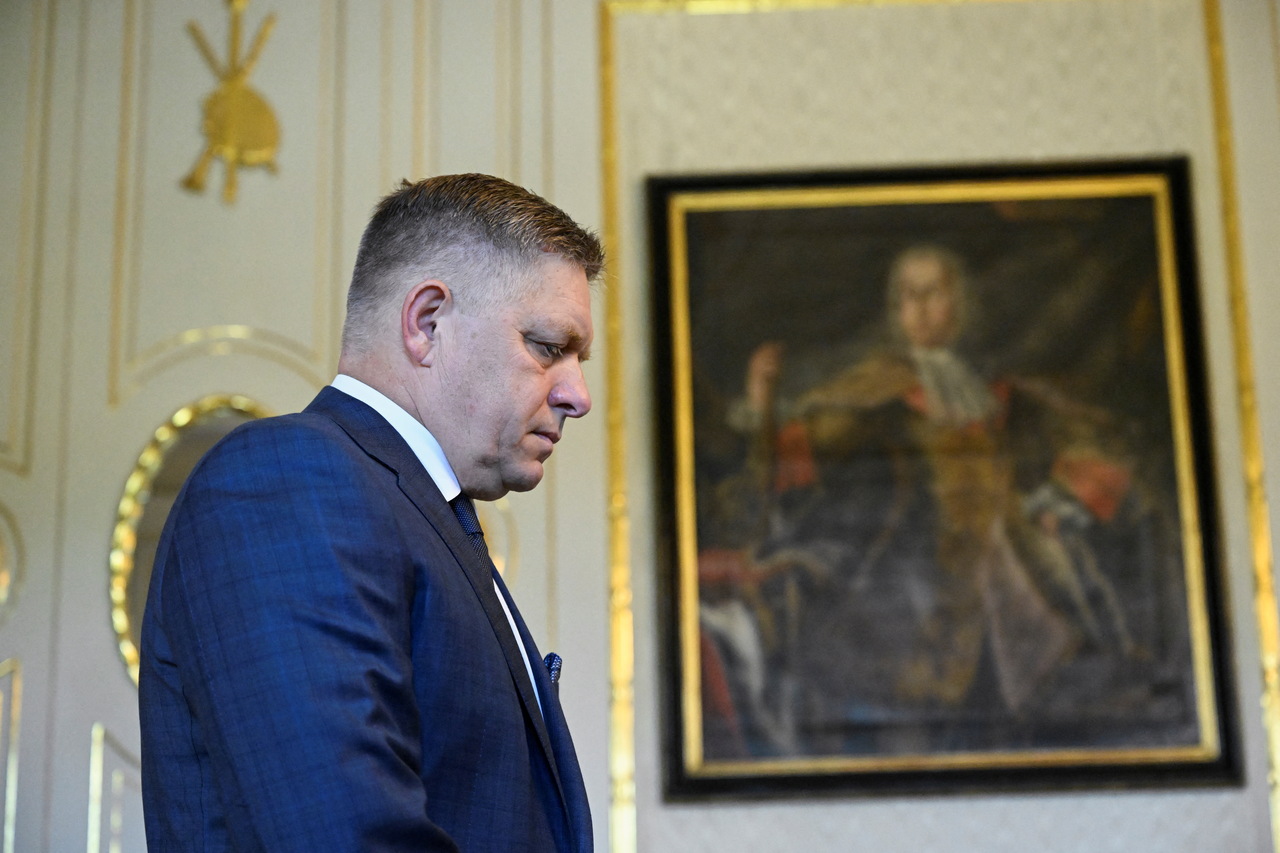Presidential Elections in Slovakia Consolidate Power
Peter Pellegrini’s victory in Slovakia’s presidential elections on 6 April raises the prospects of harmonious cooperation with Robert Fico’s cabinet. In national politics, this will facilitate the introduction of reforms that limit the rule of law and media freedom. In foreign policy, it will translate into strengthening openness to cooperation with Russia, while weakening both support for Ukraine and joint actions in NATO and the EU.
 Radovan Stoklasa / Reuters / Forum
Radovan Stoklasa / Reuters / Forum
In the second round of the presidential election, Pellegrini, the speaker of parliament and leader of the co-ruling Hlas-Social Democracy party, won against Ivan Korčok, the former foreign minister (from 2020 to 2022), by 53% to 47%. This was despite a weaker result in the first round when he won 37% of the votes against his rival’s 43%. Pellegrini, who received about 1.4 million votes, managed to expand the electorate that voted for the parties of the current government coalition in the parliamentary elections in September 2023 (it received about 1.3 million votes). In addition to Hlas-SD (which took less than 15% of the vote in the parliamentary elections), it includes the largest coalition partner, the populist Smer-SSD (23%) led by Prime Minister Robert Fico, and the nationalist Slovak National Party (less than 6%). In mid-June, Pellegrini will take over the duties of head of state from Zuzana Čaputová, who did not run for re-election for personal reasons.
Reasons for the Electoral Success
Pellegrini won thanks to the continued support of Slovaks backing the government and by winning over voters for candidates who did not make it to the second round, including former Minister of Justice Štefan Harabin (2006-2009; 11.7% in the first round), who proclaimed chauvinist views and talked about “neo-Nazi rule in Ukraine”. Pellegrini also won the majority of the electorate of those candidates who had given him direct support before the second round: the former Foreign Minister Ján Kubiš (2006-2009; 2%) and the leader of the largest grouping among Slovak Hungarians, Krisztián Forró (almost 3%). This was helped by the support of Hungarian Prime Minister Viktor Orbán, who received Pellegrini in Budapest before the first round, and the publication of an interview with him in Hungarian media during the electoral silence in Slovakia. Pellegrini also managed to take advantage of the highest level of public trust among politicians (37% in the Median SK survey from January this year).
Pellegrini’s victory was also supported by great turnout—61.14%, the highest in a presidential election since 1999. Social polarisation contributed to this mobilisation, reinforced by the contrasting profiles of the candidates. Korčok, the civic candidate, is a career diplomat (a former ambassador to the U.S. and Germany) and a critic of the government, with declared “moderately conservative” views. He was supported by, among others, liberal parliamentary parties. Pellegrini, on the other hand, is a Social Democrat who also appeals to the nationalist electorate, ran as an experienced party politician, and is one of the leaders of the current government.
The vote was preceded by an intensive, negative campaign and also disinformation against Korčok. The ruling camp accused him of, for example, posing a threat to the stability of the state, of wanting to reverse the social reforms of Fico’s cabinet (despite lacking constitutional prerogatives), and of allegedly supporting NATO’s bombing in Yugoslavia in 1999 (five years before Slovakia joined the Alliance). While the government presented Korčok as a “candidate of war”, Pellegrini advocated that Slovakia would remain “on the side of peace”. This narrative, taken from the Hungarian government, has found fertile ground in a public sceptical about military support for Ukraine. According to the Eurobarometer survey from autumn of last year, only 34% of Slovak citizens were in favour of such assistance, the lowest in the EU alongside Cyprus and Bulgaria. Korčok, in turn, accused his rival of a lack of transparency in campaign financing, which was also pointed out by Transparency International.
Presidential and Government Cooperation
Pellegrini proclaims his willingness to support Fico’s cabinet in the implementation of its programme. So far, the government’s actions have been related mostly to amendment of the Criminal Code, changes in the judiciary resulting in protection from justice of people associated with the government, as well as an attempt to politicise public media. The outgoing president, Čaputová, despite the limited powers of the office in the Slovak parliamentary-cabinet system, tried to counteract these changes by referring laws amending the criminal code to the Constitutional Court.
The prospect of harmonious cooperation between the head of government and the president results from the long-term relationship between the two politicians. In 2018, Pellegrini succeeded Fico as prime minister after the latter’s resignation due to social and political pressure following the murder of investigative journalist Ján Kuciak and his fiancée. Although the dispute with Fico led to Pellegrini’s departure from Smer and the creation of the more centrist Hlas-SD in 2020, since October last year, both politicians had been in power together.
Foreign Policy Implications
For Pellegrini, Slovakia’s membership in NATO and the EU is indisputable. In the debate on reform of the EU, he argues against limiting the right of veto, emphasising the importance of nation-states. Pellegrini, who as president will traditionally represent Slovakia during NATO summits, opposes Ukraine’s membership, which is in line with government policy. Moreover, he ignored the 20th anniversary of Slovakia’s accession, omitting its significance to strengthening the country’s security. In one debate, he also undermined Slovakia’s commitments in the Alliance by not declaring that he would provide assistance to an ally attacked by Russia (Poland was used as an example), arguing that there was a shortage of military equipment. He gives a similar explanation for the suspension of military support for Ukraine by the Fico government.
The election of Pellegrini strengthens Slovakia’s attempts to build closer relations with diverse partners. It is open to cooperation with countries such as Germany and the U.S., but also with China and Russia. As prime minister in 2019, he met with both President Donald Trump and President Vladimir Putin, advocating for the construction of the Nord Stream II gas pipeline.
Among the challenges he is going to face is to stop the sudden deterioration in relations with Slovakia’s closest partner, Czechia. This is to be achieved by, among others, a visit to Prague, traditionally the first abroad. Meanwhile, due to the change in Slovakia’s eastern policy, symbolised by the meeting between Foreign Minister Juraj Blanár and his Russian counterpart Sergei Lavrov during the Antalya Diplomacy Forum, Czech Prime Minister Petr Fiala cancelled intergovernmental consultations with Slovakia at the beginning of March this year.
Conclusions and Perspectives
In domestic politics, Pellegrini’s victory will result in a further consolidation of Fico’s power. The highest position in the state will be taken over by his long-time collaborator. Therefore, it is unlikely that he will veto the bills, especially since the National Council can override the veto by a simple majority. In addition, the political influence of Hlas-SD, a party centred on its current leader, may be weakened. The change in this position will not disrupt the functioning of the government, but it will increase the risk of Fico splitting or de facto vassalisation of the party if a politician close to him takes over the position.
In foreign policy, Pellegrini’s presidency means that Slovakia’s pro-Russian policy has strengthened and relations with the U.S. have weakened. On the other hand, the president’s stance—due to the desire to maintain a moderate image and non-necessity to continue courting the pro-Russian and anti-Western electorate—will be clearly less confrontational than the government’s stance towards the EU or the U.S. In this way, Pellegrini will try to counteract the Slovak isolationism. In this sense, the role of the president may be similar to that in Hungary.
On the international forum, Pellegrini’s victory increases the chances of coordinating the actions of the president, the prime minister, and the new speaker of parliament to strengthen the voice of the state, for example, in the form of joint declarations. However, it is doubtful that they will emphasise transatlantic cooperation or condemn Russia, unlike similar documents initiated by President Čaputová. Joint initiatives with Czechia like the visit of Presidents Čaputová and Petr Pavel to Kyiv in April last year also will be unlikely.
For Poland, the election of Pellegrini is associated with the loss of a partner at the presidential level with a shared position towards Russia. Moreover, although it can be expected that the Slovak head of state will be involved in the Visegrad Group summits, his election will deepen the crisis in this political cooperation format at the level of presidents. Despite this, the V4 will probably continue the meetings, which since Russia’s aggression against Ukraine have turned out to be the only regular meetings of the Group.





